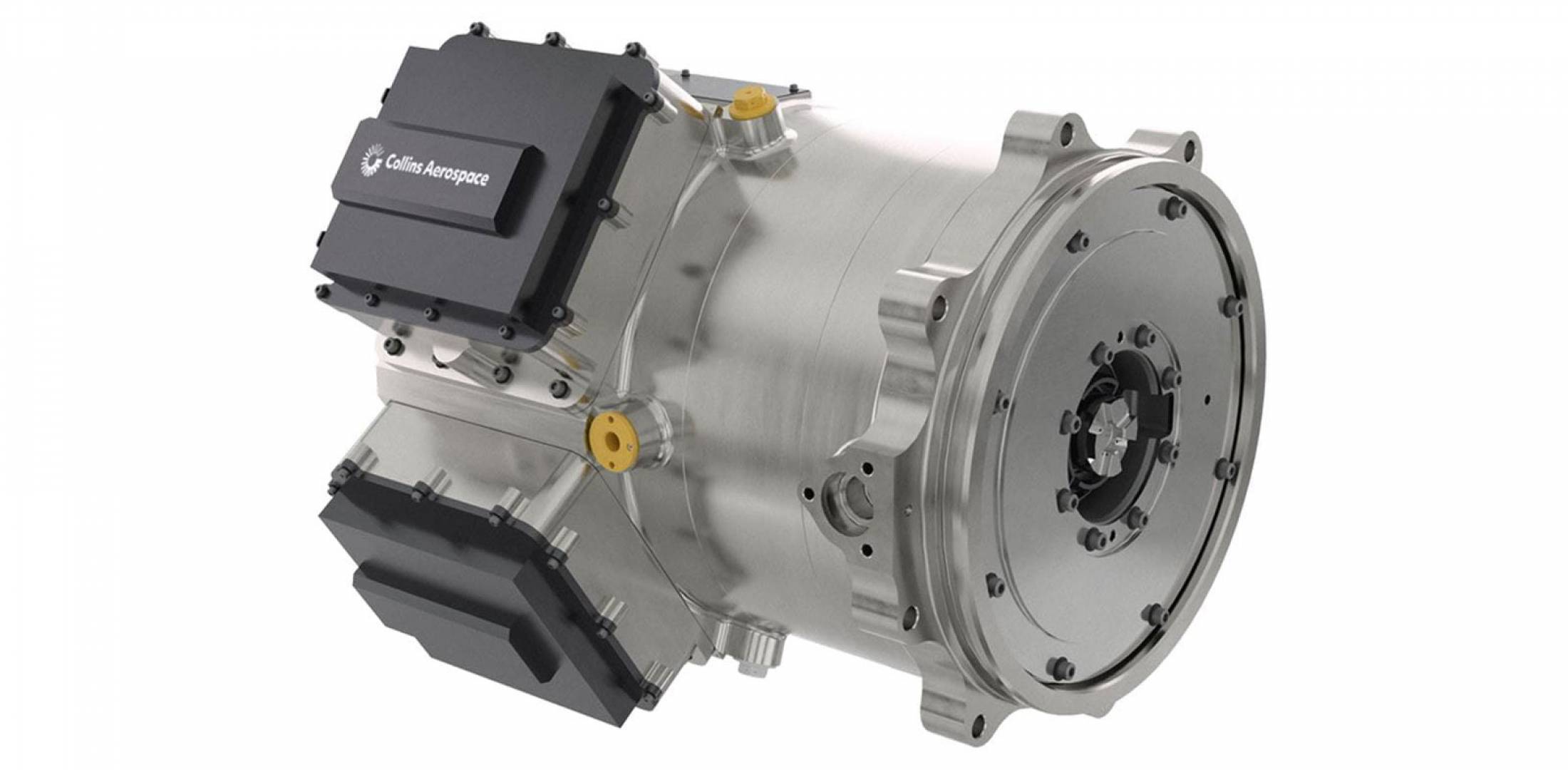Raytheon Technologies subsidiaries Pratt & Whitney (P&W) and Collins Aerospace unveiled at the Farnborough International Airshow this week a new hybrid-electric technology demonstrator program for future advanced air mobility (AAM) vehicles. The Scalable Turboelectric Powertrain Technology (STEP-Tech) demonstrator will focus on developing high-voltage distributed hybrid-electric propulsion concepts in the 100- to 500-kW class, with the potential to scale to 1-MW and beyond. The modular demonstrator platform enables rapid prototyping of a wide range of configurations, the companies said, and plans call for ground testing to begin late this year.
“Our employee base, who love to connect and protect the world through aviation, are very excited to be working on sustainability today,” said Collins chief sustainability officer LeAnn Ridgeway.
Ridgeway and Graham Webb, her counterpart at P&W, reviewed the technology and “basket of measures” they are developing to support the aviation industry’s goal of achieving carbon-neutral operations by 2050. Air traffic modernization products, for example, allow route and operations optimization; lighter-weight materials cut fuel consumption; engines that can burn 100 percent sustainable fuels reduce CO2 emissions; and hybrid-electric and hydrogen propulsion concepts in development promise to complete the last mile on the journey to net zero.
Those propulsion programs include P&W’s Hydrogen Steam Injected, Intercooled Turbine Engine (HySIITE) project, which uses liquid hydrogen combustion and water vapor recovery to produce zero in-flight CO2 emissions and an 80 percent reduction in nitrogen oxide (NOx) emissions while reducing fuel consumption some 35 percent. Earlier this year, the U.S. Department of Energy selected P&W to develop hydrogen propulsion technology for commercial aviation.
Collins also designed a 1-MW electric motor for P&W’s regional hybrid-electric flight demonstrator, which will re-engine one of the powerplants on an experimental De Havilland Dash 8-100 regional turboprop, augmenting its turbine engine with the electric motor in a parallel hybrid configuration. The electric motor will provide extra power during takeoff and climb, allowing the fuel-burning engine to be optimized for cruise flight, and yielding an expected 30 percent improvement in fuel efficiency and a corresponding reduction in CO2 emissions. The company has scheduled flight tests of the hybrid-electric demonstrator for 2024.
